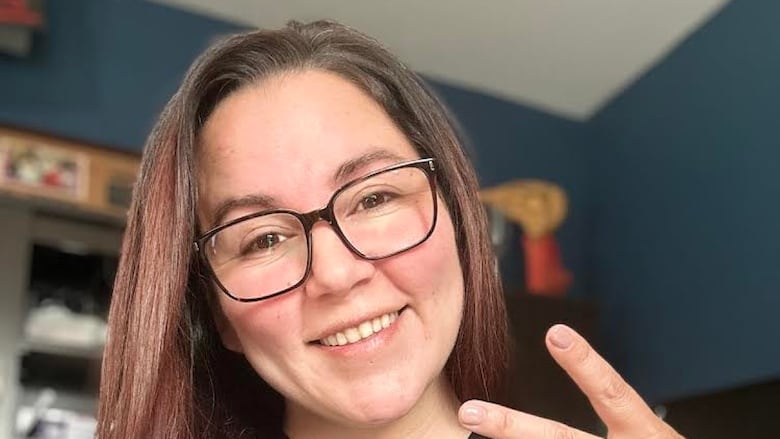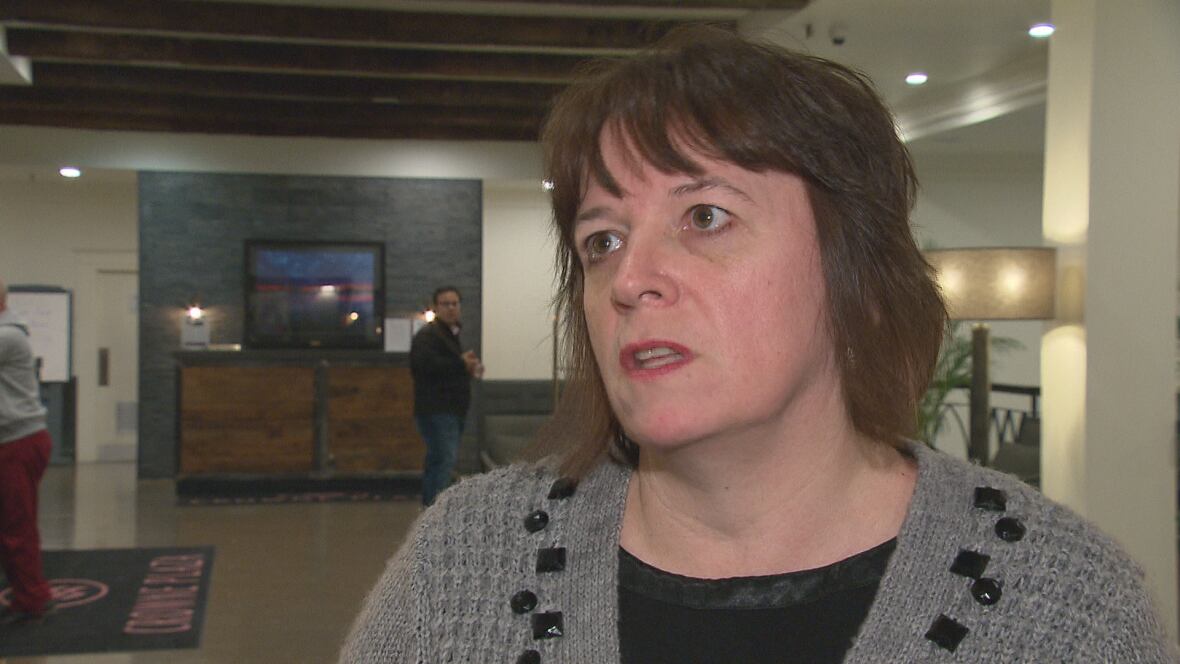Wolastoqey leaders call for Safer Communities and Neighbourhoods-type plans on-reserve
Sitansisk councillor says she feels 'vulnerable and unsafe' outside N.B. SCAN jurisdiction

Illicit drug use is a dark shadow in Shannon Polches's usually bright community and she thinks New Brunswick's Safer Communities and Neighbourhoods (SCAN) Act could help.
But when Polches asked if the SCAN act applied to Sitansisk (St. Mary's First Nation) near Fredericton, she got an email saying SCAN didn't have jurisdiction in First Nations communities. Upon hearing that, she said it made her feel "vulnerable and unsafe."
"The ability for my community members to report any type of illegal activity in our community and have the same protection as Frederictonians would mean a lot to me," said Polches, a band councillor for St. Mary's First Nation.
The SCAN act in New Brunswick allows people to report places suspected of drug use, sales or other crimes. The SCAN unit is not a police authority but can work with law enforcement for their investigations into potential illegal activity.
A person has to file a complaint using their name, though under the SCAN act the name of the complainant must remain confidential. If there's enough evidence the SCAN unit launches an investigation and surveillance operations begin at the residence.
If the complaint is verified, a series of steps will be taken to notify the residence that illegal activity is suspected there and can lead to a court-ordered shutdown. If the case proceeds to court, the SCAN unit will bring the information to court independent of the complainant.
Polches said in the last 30 years drug use in her community has increased and she worries that's putting women in her community at risk.
She said her community wants to create bylaws to clean up the drug activity but enforcement remains a jurisdictional challenge.
"I would like to see commitment and action from federal, provincial and municipal governments especially because we have to work together to develop something that everybody is going to be able to utilize," said Polches.
'These are our families'
Roxanne Sappier, director of health for Neqotkuk (Tobique First Nation), about 120 kilometres northwest of Fredericton, said illegal drug use is a strain on the health-care system in her community.
She said people are using drugs like crystal meth and cocaine and it's deteriorating their mental and physical health.
"These are our families, this is our future, and they're starting younger and younger," said Sappier.

She said her health department doesn't have the resources to keep up. Their community treatment centre is at capacity and they've had to turn away people.
Sappier put forward a motion to enact a band council resolution to declare a state of emergency, which chief and council still have to vote on.
Sappier said they need federal funding for security, mental health supports and harm reduction funding and she'd like to see a safe consumption site.
She said she thinks a tool like SCAN would be a valuable starting point to deal with drug dealers because people are afraid of retribution from them.
"I think that would be good because a lot of people don't want to go to court; they don't want to have to testify," said Sappier.
Chief Allan Polchies of Sitansisk said all six Wolastoqey communities are working on a plan to address illicit drug use and sales. He supports a call to enact a SCAN-like program in the community.

Polchies said they've worked for over a year on a community safety plan that has to be approved by community residents.
"This is one of the major issues that will be spoken to and to get some sort of resolution on how this needs to be played out within our communities to have a safer community," said Polchies.
The New Brunswick Department of Justice and Public Safety said by email that Minister Kris Austin would be following up with a band councillor to see how the SCAN Act may assist their concerns.

